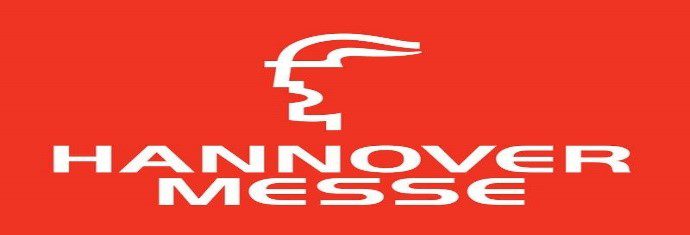Startups offer wider health access to people. Indonesian-born Jonathan Sudharta felt proud of his country when a top Health Ministry official defended his then untested idea of health technology (healthtech) startup HaloDoc.

This was back in 2015, when Jonathan and his friend Doddy Lukito pitched their startup to the ministry’s then director general for pharmaceuticals and health equipment, Maura Linda Sitanggang, in her office in Jakarta.
The two friends explained they would develop a medical service e-marketplace where users could – with a single app – buy medicine, book consultations, find nearby medical facilities and video-call doctors. Their aim was to improve medical access to Indonesia’s most remote regions.
“One of her staff said to her: ‘What creature is this? We don’t know how to regulate it. Better not endorse this now’,” Jonathan recalled.
“To my surprise, Bu Linda was very forward looking. She said [the ministry] did not know how to regulate [healthtech] because it never responded to changes in the market. Since then, regulators don’t see us as aliens but are willing to accept us, work together and listen to our input,” he said.
As of June, HaloDoc has grown to serve 7 million monthly active users and earlier this year raised US$65 million in series B funding. Based on publicly available data, it is currently the best funded Indonesian healthtech startup.
Indonesia’s healthtech scene emerged in the late 2010s when entrepreneurs founded many of today’s notable players such as HaloDoc, Alodokter, Medigo and ProSehat. In August last year, some of these players banded together to form the Indonesian HealthTech Association.
According to the Galen Growth Asia consultancy firm, Indonesia held the sixth largest market share (5 percent) of the healthtech ecosystem in the Asia-Pacific region last year. The five largest shares were held by India (28 percent), China (26 percent), Singapore (11 percent), Japan and Australia (8 percent each).
Despite their numbers, many local healthtech startups actually overlap services with those provided by HaloDoc. Cases in point: Alodokter–the country’s second best-funded healthtech startup–enables online chatting with doctors and Prosehat sells medical services online.
Tech In Asia and DailySocial maintain longer lists of local healthtech startups, many of whom offer similar services.
“Health tech in Indonesia is still in a very early stage. We haven’t seen many [notable] companies apart from the existing successful ones. It’s not as developed as, let’s say, e-commerce,” said Gary Khoeng, executive director of the Vertex Ventures capital firm.
Vertex, through its namesake HealthCare investment arm, has disclosed it has invested in 14 healthtech companies since 2013, all of which are located in Western countries, except for China’s Phoenix Healthcare Group.
The Earlens Corporation of the United States, for instance, raised US$73 million, led by Vertex, for producing a more natural-sounding hearing aid, while the United Kingdom’s Bicycle Therapeutics raised $52 million to develop new cancer medication.
In comparison, CekMata and Medigo, which are two innovative, non e-commerce Indonesian healthtech startups, have only reached early-stage funding.
CekMata is developing an app that uses artificial intelligence (AI) to detect diabetes based on eye photos, while Medigo aims to synchronize the databases of every medical facility in the country to eliminate bureaucratic bottlenecks.
Indonesia’s healthtech scene is still largely focused on technology that improves access to healthcare products and services. It is still far behind many innovations in biotechnology, medical devices and diagnostics.
“It’s not that Indonesia is that late either, but we are tackling the low hanging fruit first,” said Gary.
Nevertheless, Indonesia’s healthtech players are optimistic over growth, considering the country hosts the world’s fourth largest population.
The association predicts Indonesia’s health market is to be worth $363 billion by 2025, 18 times more than the estimated $20 billion in 2010. The driving factors include a growing middle class and an unhealthy lifestyle.
Galen Growth also recorded that Indonesia captured $20 million worth of healthtech investments last year, which was the second largest in Southeast Asia after Singapore’s $107 million.
Jonathan, who is also the digital technology chairman at the Indonesian Pharmaceutical Association (GP Farmasi), said the Health Ministry and the Food and Drug Monitoring Agency (BPOM) were the two most active regulatory bodies exclusive to healthtech startups.
He added that medical e-marketplaces such as his company were expecting the Health Ministry to issue a regulation about online pharmaceutical providers (PSEF) within a few years.
Acting pharmaceutical and health equipment director general Engko Sosialine Magdalene told The Jakarta Post in a short text message that the ministry was working on such a regulation but did not state when it would be issued.
“The government is obligated to ensure the usage of digital technology follows regulatory corridors and prioritizes patient safety, such that even when patients buy medicine online, it must come from legitimate sources, be served by trained practitioners and include health education briefings,” she said.
Looking forward, Jonathan said the most pressing challenge for healthtech, particularly e-marketplaces, would be in changing consumer behavior.
“People were not used to buying food before it was in their hands. Now, they use Go-Pay [an e-wallet]; they’re comfortable having their food delivered. Similarly, people were not used to meeting doctors online. Now, they can do online consultations. [However], changing behavior will take time and incur costs. It won’t come instantly,” he said. Startups offer wider health access to people (Norman Harsono, The Jakarta Post)






 Cara Mengamankan Listrik di Pabrik dan Bangunan Industrial, Gunakan Solusi Siemens
Cara Mengamankan Listrik di Pabrik dan Bangunan Industrial, Gunakan Solusi Siemens 